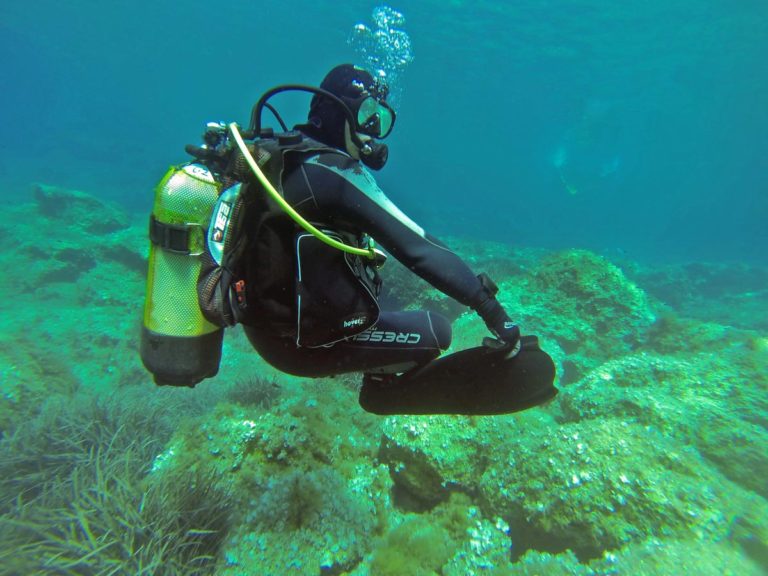The Maltese islands are justifiably renowned for their many wreck-diving opportunities but, according to local dive professionals speaking to Malta’s biggest newspaper, visiting divers are complaining that lack of marine life has turned the seas into “a beautiful cemetery”.
Also read: Malta: Speardiver nabbed + authorities slammed for scuba inertia
Mark Busuttil, owner of St Andrew’s Divers Cove in Xlendi and a vice-president of the Professional Diving Schools Association (PDSA), which represents 44 Malta, Gozo & Comino dive centres, told the Times of Malta that the pithy description came from a Dutch scuba diver who had been visiting the islands for the past 30 years.
“The last time he was here he told me his dive was poor and to take him somewhere where there is fish… the reefs and rocks are beautiful but there is barely any marine life,” he said, adding that most diving tourists were complaining about the lack of fish, which he blamed on unsustainable fishing practices as well as ghost-fishing.
“Hundreds of fishing nets are dumped into the sea and continue to trap and kill thousands of fish. There are also thousands of small fishing cages that are a death-trap to small fish – it’s quickly turning into an underwater disaster,” he said, adding that, although not bad enough to ruin the diving experience, the level of plastic pollution was “lamentable”.
Spot the seahorse
Italian journalist Michela Moro had lived and dived in Gozo for 30 years but was now considering moving away because of the problem. She said that what had been “a gem” was fast becoming devoid of fish such as the “huge grouper and greater amberjack”, and that she couldn’t remember the last time she had seen a seahorse (the symbol of the PDSA).
“Even though I see some of the other fish, they’re smaller and fewer nowadays,” said Moro, adding that the reef had turned “brownish” and seaweed coverage had reduced. She also noted that, unlike many other countries, Malta had failed to create a single marine reserve.
Regardless of divers’ anecdotal experiences, marine biologist Alan Deidun pointed out that a reduction in fish numbers had not been scientifically established. However, he conceded that the Mediterranean was becoming dominated by jellyfish because there were fewer fish to eat them or compete for prey, and that fishermen were catching fewer of most species of edible fish.
Malta’s fishing industry was too small to be blamed, said Deidun, explaining that it was big trawlers from overseas operating unsustainably that inflicted the damage.
Heavy investment
Some 15-20% of visitors to Gozo were scuba divers, according to the Maltese island’s head of tourism Joe Muscat, who said that heavy investment had been made to attract them, in the form of advertising, wreck sinkings and hyperbaric chamber provision.
“Diving is one of the ideal industries for Gozo because it does not pollute, uses Gozo’s natural beauty, is sustainable,” he told the paper. “Divers are some of the highest-spending tourists, so it would be a pity if the industry had to be dented in any way.”
On behalf of divers, Busuttil argued that to tackle the problem greater regulation of fisheries was needed to restore the ecosystem: “Fish lay a lot of eggs and procreate abundantly,” he said. “If we just give it some time, it will regenerate rapidly.”
Also on Divernet: Malta Sub Dive Sinks Conspiracy Theory, Malta Sinks Another Patrol Boat, Dive Into Malta’s Virtual Museum

